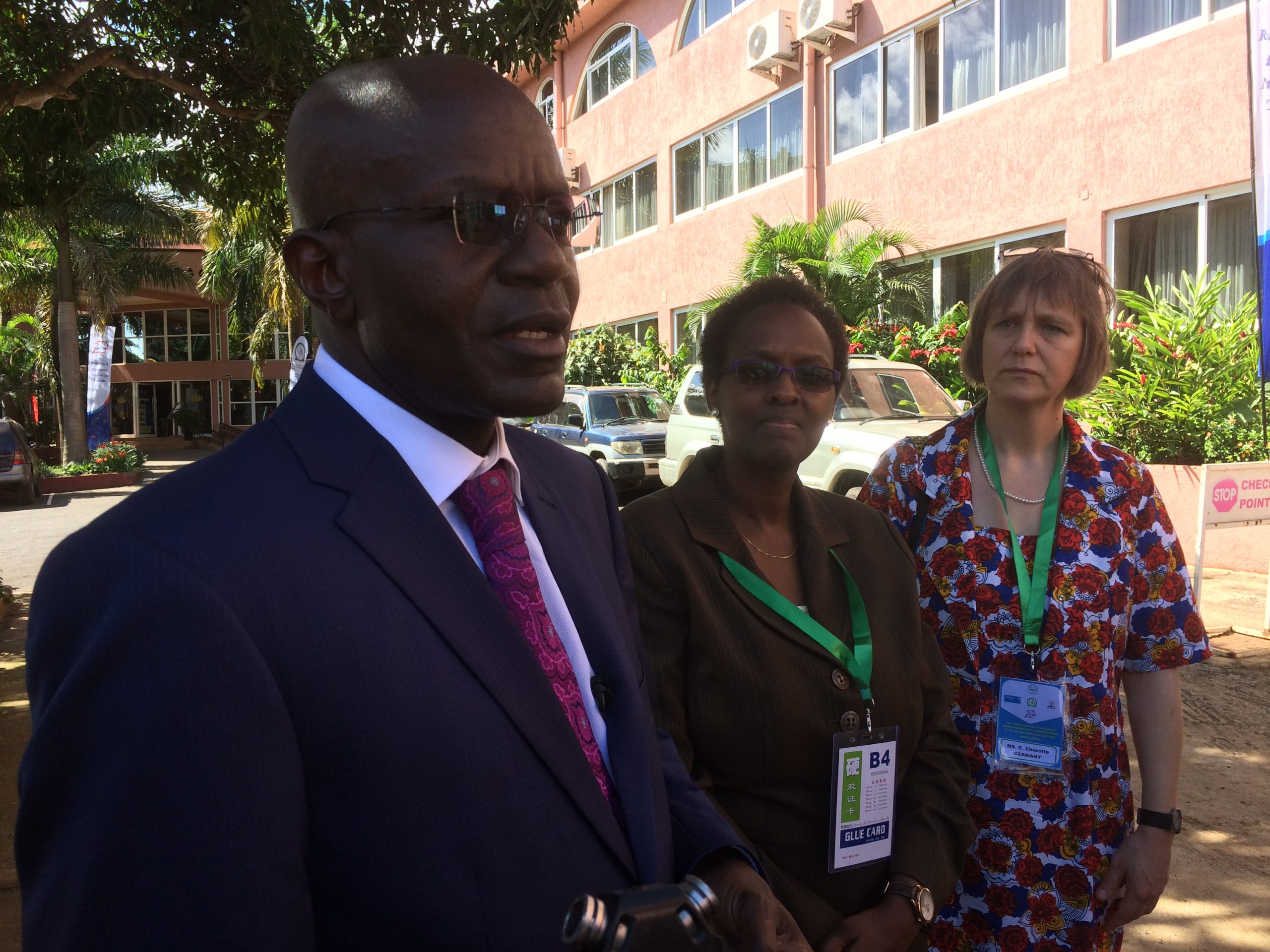Embrace Local Revenue to Fight Malaria in Uganda
By Chipo Brenda
The US. Presidential Malaria Initiative urges Ugandans to embrace local revenue if it is to be eradicated.
Dr. Mame Niang , CDC US. President’s Malaria Initiative and a resident adviser says it will be good for Ugandan government to also look for funds in the race to fight malaria because the US. Mission in Uganda will not cater for all areas regarding malaria in the country.
Dr. Mame says, it is a pity to see that mostly children are still dying because of malaria yet it is preventable and curable, she adds that funding is reducing every financial year simply ,hence the need for people to involve themselves.
Also funds will keep reducing because also the donor giving organizations are shifting their help to other things and other countries which are more worse in either that same disease or even a different disease.
” 400,000 people still die globally due to malaria attack, but it affects mostly the African continent” says Dr. Mame.
KEY NOTE: In the era where both the plasmodium and the female anopheles mosquito have learnt escape routes from antimalarial and insecticides, there is need to have science guided interventions for malaria control program to become imperative.
As a norm, the world malaria day was fixed on 25 every April to mark and celebrate the achievements reached upon in preventing the killer disease of Malaria, to find the perfect medication, to share various outcomes and discover new phenomenon of how the disease might manifest it self. This years theme is : Zero Malaria starts with Me” in Uganda the national celebrations were held in Aleptong district on the 25th April.
Dr. Kassahun Belay also US P M I, adds that, Uganda to eliminate malaria by 2040 according to world Health Organization Report.
The WHO global Technical strategy Malaria (2016 – 2030) clearly outlines their goal that by that time they would have eliminated malaria upto 90%.
Dr. Jimmy Opigo from the ministry of Health says, there has been a missing link in the past intervations to prevent and eliminate the disease.
He adds, in the past senarios, the government has put a number of fighting mechanisims like providing the treated insecticide mosquito nets, spraying the houses, sensitization among others but still there is need to involve people in all steps the government takes to eliminate malaria.
” For instance, if the government gives out mosquito nets and the person or family supposed to use it does not put it to good usage then, it will not have achieved the goal to chase away malaria, narrates Dr.Opigo”.
The above is what we term as net access versing net usage!
Dr. Opigo further labored to explain that in case of mass spraying indoor Residual Spray (IRS) of the mosquitoes in an area, there is need to get the consent of the house owner before one starts spraying.
This is why we have termed it as “House Hold War” simply because it involves both the actors and the owners but the sole person is the one on the ground and must be able to abid by the activities the government is putting in place to chase the mosqiutoes which breed and are responsible for malaria spread.
Dr. Opigo adds that, individuals should be with the zeal to cleanup their homestead sorroundings because if the government is dealing with IRS it will not do such even in the nearby bushes which react every after two weeks, the government will not come to the compound with ditches full of water to empty them not will it close windows and doors for the natives. No, that is why we say it is a household war and most importantly it starts with Me.
Dr. Opigo states that, individuals constructing houses must be keen when fixing windows and doors hence they should both have the nets in them to prevent mosquitoes from entering their houses.
But recently the Uganda Beruea of Statistics show that 60% of Ugandans are renting, will the fixing of these nets not add an extra cost to both the landlords and the tenants? this questions remains un-answered but we should think about it for our lives.
There were 216 million cases of malaria in 91 countries up to 211 million cases in 2015.
There were 445000 deaths from malaria globally
In Africa, about 285000 deaths were of children under the age of five thus representing over a half of the global death of malaria, children are the most vulnerable to malaria, hence every 2 minutes a child dies from malaria.
Uganda is one of the top ten countries with the highest malaria disease burden in the world with 95% endemic, leading to 30-50% of outpatients visits and 15-20% hospital admissions. Despite the marked improvement in its management, commodity access remains a problem with 10% of health facilities continuously stocking out (ACTs) .






